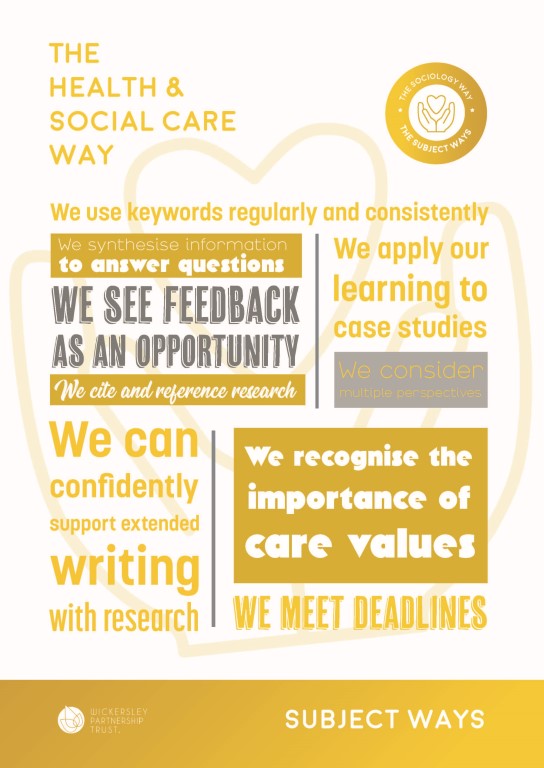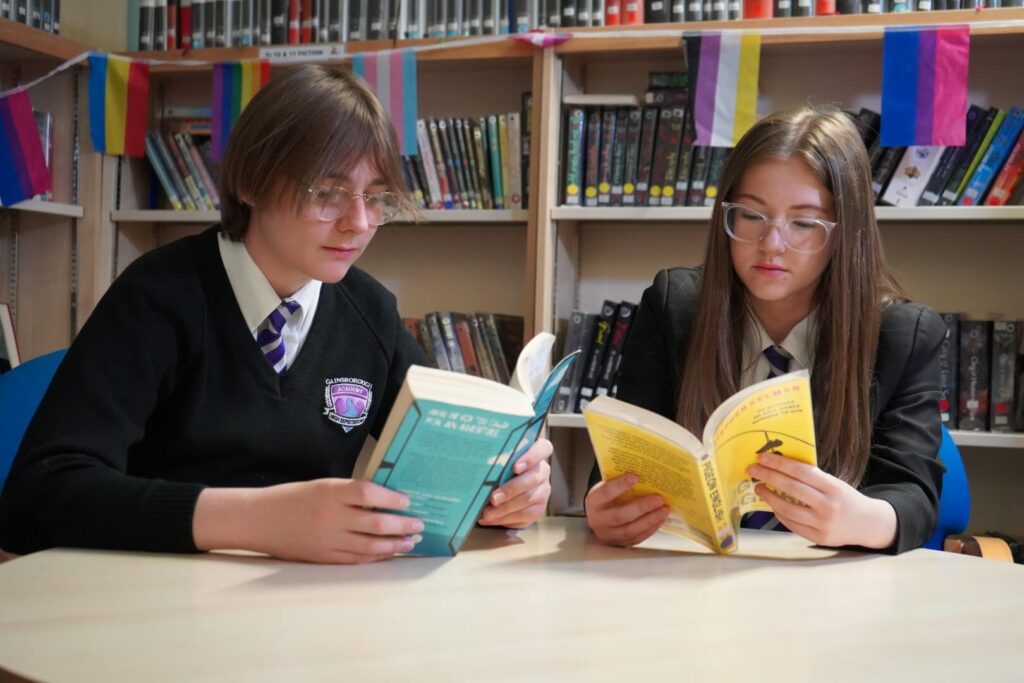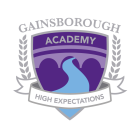Curriculum
Health & Social Care
Subject Staff
Mrs Burgin
Miss Douglas
The Health & Social Care Way
Our subject has a ‘Subject Way’ at the heart of it. Our Subject Way is designed to help students become young subject specialists. The Subject Way has two main purposes:
Firstly, to teach students the vital skills they need to achieve their full potential and gain the very best grades they can. Secondly, to teach students how each subject relates to the wider world, incorporating the life skills they will learn.
It is our belief that knowing how what you learn links to the wider world, brings a subject to life and therefore improves overall understanding and engagement.

Curriculum Intent
We aim to ensure our Health and Social Care curriculum is designed to sequence learning and embed the key skills that are required to develop curious students into competent individuals with a sound knowledge base of development or individuals across the life span as well as health and social care settings and the practices within them.
Our curriculum empowers students to develop their interest around a wide range of interlinking themes within the health and social care world that expose students to a wider world beyond that of the local community. Within our local community we work closely with the local residential care home to expose students to real life health and social care settings and work with the careers team to get our students work based experience if requested to enhance tnges of the world beyond school. Our curriculum empowers students to develop their interest around a wide range of interlinking themes that expose students to a wider world beyond that of the local community. Our one-year Key stage 3 Year 9 curriculum introduces students to knowledge and skills that are needed in Health and Social Care and our 2-year Key Stage 4 curriculum builds on new learning and ensures that we nurture student’s skills for learning so they develop over time. Our intention is to develop a curriculum that helps students develop into well rounded human beings ready and able for the challenge to develop over time. Moving from L1 through to L2 distinction level. We give all students the opportunity to reach their highest potential and differentiate learning down where necessary to support students and foster learning.
INTENTION 1 – The removal of barriers to learning
The Health and Social Care curriculum allows students to develop their Literacy skills. Students will have the opportunity to develop their Oracy skills in every lesson when answering questions or engaging in class discussions. All students have the opportunity to take part in role plays to practice and demonstrate vital skills such as communication skills. Students will be given key vocabulary to support their learning and there will be reciprocal reading based around Health and Social Care topics.
INTENTION 2 – Developing skills for learning
Throughout the Health and Social Care curriculum students will develop creative skills by applying knowledge to different scenarios. Students will also be learn to recall information and apply them to different situations such as case studies. Students also have to create health and care plans for different case studies. As part of Health and Social Care pupils practice divergent thinking when applying knowledge to different scenarios as well as understand a person cantered approach.
INTENTION 3 – Fostering personal attributes
Aspects of the School Way are built into the Health and Social Care curriculum. Students will develop independence skills by undertaking and completing assignments. Independence and Resilience skills will also be developed by students learning how to develop their ideas. Overall, students will be able to develop fundamental Health and Social Care skills which will allow them to be responsible citizens.
INTENTION 4 – Enriching student experiences and broadening their horizons
Students are given a range of opportunities to broaden their horizons in the Health and Social Care curriculum. Students will get the opportunity to hear from real practitioners such as various job roles in the NHS. Students also will get practical experience through the use of demonstrations and practical activities. All students will also get the opportunity to take part in the annual Step into the NHS competition as part of a Year 9 topic of study.

Curriculum
Key Stage 3
Using KS2 results, students are placed in sets on entry to school. Students have three 80 minute English lessons each week. The topics studied build on previous skill sets and develop in difficulty, as we start with a review of primary skills and build up to GCSE and A Level. The department uses regular assessments and ‘sticker tasks’ to assess the understanding that students have developed and address any misconceptions, thus allowing us to plan their next steps and meet their needs more effectively. Each assessment will be followed by a bespoke intervention task for each student, allowing them to work on and improve in any areas they may struggled with.
We have three driving themes which students will study and return to each year: Power, Relationships and Identity. From Year 6 rollover into Y7 and Y8, students will study five different texts writing skills and produce descriptions, narratives, articles, speeches and poems. The text choices are:
- The Boy at the Top of the Mountain by John Boyne
- My Sister Lives on the Mantelpiece by Annabel Pitcher
- Noughts and Crosses (the play) by Malorie Blackman
- Animal Farm by George Orwell
- Romeo and Juliet by William Shakespeare
Across Y7 and Y8, students have one lesson of Drama incorporated into every sixth lesson of English. As a vital part of developing students’ oracy skills, Drama and English specialists work together to build these links across our joint curriculum. This includes developing role play to empathise with characters from the texts, and effective presentational talk.
From Y9, students will then move to three blocks of thirteen weeks of study. Alongside the reading of these texts, students will return to previous writing skills in addition to writing letters and travel writing.
- A Christmas Carol by Charles Dickens
- A Gothic Anthology of extracts including Edgar Allen Poe
- Othello by William Shakespeare
Key Stage 4
All students have four lessons of English per week leading towards their two GCSEs in English Language and English Literature (AQA). Students have regular topic tests and these, alongside homework, allow staff to check the ongoing understanding of the students. The use of mock exams in Y10 and Y11 allows students to be comfortable and confident in an examination setting, as well as helping them to target their revision more effectively.
English Language
The English Language qualification consists of two examinations which assess students’ reading and writing skills. Across the two examinations, students read and comment on fiction and non-fiction texts from a range of time periods. The skills of retrieval, inference, analysis, evaluation, synthesis and comparison are essential aspects of the course. Students are also required to use these texts as inspiration to write creatively. Students are asked to write for different purposes, such as writing to describe, narrative, argue and explain. Students are assessed on their ability to write for purpose, use language, structure their writing and be accurate.
English Literature
The English Literature qualification also consists of two examinations, and students study texts across a range of genres. Our chosen Literature texts are Macbeth by William Shakespeare; An Inspector Calls by J.B. Priestley; Strange Case of Jekyll and Hyde by R.L. Stevenson; and the Power and Conflict poetry anthology. Students are therefore given the opportunity to read texts across different time periods and continue to learn about significant themes, some of which they have already encountered at Key Stage 3. Students learn to analyse writers’ methods, make interpretations, use evidence and link to wider ideas and concepts.
Our Curriculum
Term 1 – Failings in health and social care
Students will explore current issues in health and social care provision, looking at the possible reasons for these.
Students will begin to evaluate the wider impact of current issues within our health and social care provision.
Term 2 – Careers in health and social care
Students will have the opportunity to explore different career opportunities within health and social care provision.
Students will carry out primary research, as part of a career workshop in order to learn about different professionals that work in various parts of health and social care.
Students will apply their knowledge of careers to a case study, creating a care plan to help positively influence health and well-being.
Term 3- Creative and theraputic therapies
Students will learn about a range of creative activities and therapies that are available in health, and social care settings and understand the physical, intellectual, emotional and social benefits of these.
In year 10, students will be completing work towards their OCR Level 2 Cambridge National in Health and Social Care qualification.
Term 1 R033: Supporting individuals through life events
This unit is assessed by a Set Assignment, students will learn about growth and development through the life stages. You will also learn how to understand the needs of individuals who have been affected by life events and how to recommend support to meet their needs. This term students will prepare for the life stages, factors, and the impact of life events components of their coursework.
Term 2 R033: Supporting individuals through life events
For the first half of term 2, students will complete R033 content for their supporting individuals through life events coursework, specifically looking at sources of support when experiencing life events. In the second half of term, 2 students will complete their set assignment for this unit.
Term 3 R032: Principles of care in health and social care settings
Students will start preparing for their external assessment. In this unit, students will learn about the key topics that are important when caring for and protecting people in health and social care. Students will learn about the rights of service users in health and social care settings.
In year 11 we start with focussing on the exam element of the course with the exam taking place in the January of year 11. The exam unit is on Health and Wellbeing and learners will study the factors that affect health and wellbeing, learning about physiological and lifestyle indicators, and how to design a health and wellbeing improvement plan. Within this unit we look at physiological and lifestyle indicators including physical indicators like genetic conditions, ill health, diet, exercise, substance abuse and personal hygiene, Social/Emotional factors like stress, relationships, willingness to seek help, Economic factors and Environmental factors such as pollution and housing.
Pupils are then taught how to interpret health indicators such as pulse, blood pressure, peak flow and BMI and the risks posed to health. The final part of the exam is creating a health and well being plan where pupils are taught about SMART targets and how to create a plan around a number of health issues. The final coursework unit in year 11 is Demonstrate care values and review own practice. Pupils learn about and then through a role play demonstrate the different care values that are vital in a health and social care career. Students then review their own practice evaluating the successes and improvements that they would need to make if they were to do it again.
Students advance on the key writing skills that they have learnt throughout health and social care applying them to writing up their coursework. Researching, planning, observing and evaluating skills are developed throughout their coursework. The skills learnt will be useful in further studies as these are transferable skills and could be applied to many subject areas. Students learn real life health and social care skills which could be transferred into real life job roles. They learn how to demonstrate care value skills such as empathy, independence and communication skills. They also learn how to write a health and care plan which teaches them valuable lessons in targeting setting and making targets specific, measurable, achievable, relevant and timed.
Department Staff
D Burgin
H Willert
Find out more
If you would like more information about our curriculum, please contact the school using the details on our contact page.
Our Subjects at KS4
CORE SUBJECTS
EBACC SUBJECTS
OPTION SUBJECTS


